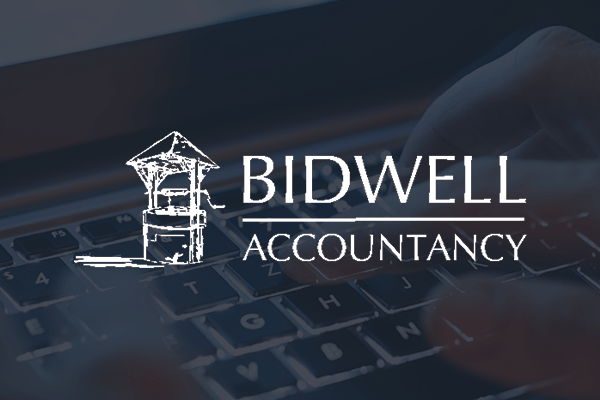Newsletter - March 2022

Do you qualify for this allowance?
HMRC recently published a reminder targeted at married couples with an unused personal tax allowance.
They said:
Marriage Allowance allows married couples or those in civil partnerships to share their personal tax allowances if one partner earns an income under their Personal Allowance threshold of £12,570, and the other is a basic rate taxpayer.
Eligible couples can transfer 10% of their tax-free allowance to their partner, which is £1,260 in the 2021-22 tax year. It means couples can reduce the tax they pay by up to £252 a year. Couples can apply any time, backdate their claims for any of the 4 previous tax years and receive a payment of up to £1,220 at a time when they need it most.
Married couples may have experienced a change in their circumstances which could now mean they are eligible for Marriage Allowance, including:
- a recent marriage or civil partnership
- one partner has retired and the other remains working
- a change in employment due to COVID-19
- a reduction in working hours which means their earnings fall below their Personal Allowance
- unpaid leave or a career break, or
- one partner is studying or in education and not earning above their Personal Allowance
If a spouse or civil partner has died since 5 April 2017, the surviving person can still claim by contacting the Income Tax helpline.
Marriage Allowance claims are automatically renewed every year.
Back to normal?
Now that the majority of COVID-19 restrictions are being eased, or removed completely, can we assume that normality can return in place of the unremitting uncertainty of the past two years?
Whilst this may seem to be a welcome prospect, business owners badly affected by this disruption will have two issues holding them back:
- A depleted balance sheet - reserves used to survive extended periods of shut-down or reduced trading.
- The repayment of loans taken out to fund overheads and other fixed costs during lockdown.
Both of these issues will inhibit a sudden rush of activity unless sales are made on a cash basis.
Business numbers give you clear insight into where you are and where you've been, so you are able to make educated decisions about how to move your business forward.
If you want to get control of your numbers then please contact us about our Business Planning Service
Have you used your tax-free capital gains allowance?
You and each member of your family is entitled to make tax-free capital gains of up to £12,300 in the 2021-22 tax year. If you have made no disposals that would trigger a capital gain in 2021-22, consider the following:
If you have assets, shares for example, that you are thinking of selling, you may want to realise enough to produce gains up to the £12,300 limit.
Transfers of assets between married couples or civil partners can be made free of Capital Gains Tax (CGT). In which case, if you have used your £12,300 allowance and still have assets that you want to sell, then transfer enough of these remaining assets to your spouse or civil partner for them to sell and utilise their separate CGT tax-free allowance.
Please note that you may have to pay CGT if you sell a personal possession for £6,000 or more. For example, a sale of:
- jewellery
- paintings
- antiques
- coins and stamps, or
- sets of things, e.g., matching vases or chessmen
You will not have to pay CGT if you dispose of your private car or any personal possession with a limited lifespan, e.g., clocks. The only exception is if a car or other limited lifespan asset was used in a business. Disposals of business assets may create a tax charge.
Closing a limited company
You usually need the agreement of your company’s directors and shareholders to close a limited company. The way you close the company depends on whether or not it can pay its bills.
If the company can pay its bills (it is ‘solvent’)
You can either:
- apply to get the company struck off the Register of Companies
- start a members’ voluntary liquidation
Striking off the company is usually the cheapest way to close it.
The company can’t pay its bills (it is ‘insolvent’)
When your company is insolvent, the interests of the people your company owes money to (its creditors) legally come before those of the directors or shareholders.
You must arrange the liquidation of your company.
Your company might be forced into compulsory liquidation if you don’t pay creditors.
You may be able to avoid liquidation by applying for a Company Voluntary Arrangement.
If the company doesn’t have a director
You must appoint a new director if your company doesn’t have one, for example if a sole director has died.
Companies House will eventually strike off a company that doesn’t have a director, but this can make it more difficult to manage any company assets.
Shareholders must agree to appoint a new director and may need to vote on it.
If a sole director has died and there aren’t any shareholders the executor of the estate can appoint a new director, as long as the company’s articles allow it.
The new director can close the company.
Your company still needs to pay corporation tax and file a tax return even if there’s no director.
Let the company become dormant
You don’t have to close your company if it’s no longer trading. You can let it become ‘dormant’ for tax as long as it’s not:
- carrying on business activity
- trading
- receiving income
Your company will still be registered at Companies House. You must still send your annual accounts and confirmation statement (previously annual return) to Companies House.
You can keep a limited company dormant for as long as you want.
Tax Diary March/April 2022
1 March 2022 - Due date for Corporation Tax due for the year ended 31 May 2021.
2 March 2022 - Normally Self-Assessment tax for 2020-21 would need to be paid by 2 March or a 5% surcharge would be incurred. This year HMRC is giving taxpayers more time to pay and no surcharge will be incurred if liabilities are cleared by 1 April 2022, or an agreement has been reached with HMRC under their time to pay facility by the same date.
19 March 2022 - PAYE and NIC deductions due for month ended 5 March 2022 (If you pay your tax electronically the due date is 22 March 2022).
19 March 2022 - Filing deadline for the CIS300 monthly return for the month ended 5 March 2022.
19 March 2022 - CIS tax deducted for the month ended 5 March 2022 is payable by today.
1 April 2022 - Due date for corporation tax due for the year ended 30 June 2021.
19 April 2022 - PAYE and NIC deductions due for month ended 5 April 2022. (If you pay your tax electronically the due date is 22 April 2022).
19 April 2022 - Filing deadline for the CIS300 monthly return for the month ended 5 April 2022.
19 April 2022 - CIS tax deducted for the month ended 5 April 2022 is payable by today.
30 April 2022 - 2020-21 tax returns filed after this date may be subject to an additional £10 per day late filing penalty for a maximum of 90 days.

Unit 157, Milton Keynes Business Centre,
Foxhunter Drive, Milton Keynes,
Buckinghamshire, MK14 6GD
Bidwell Accountancy




